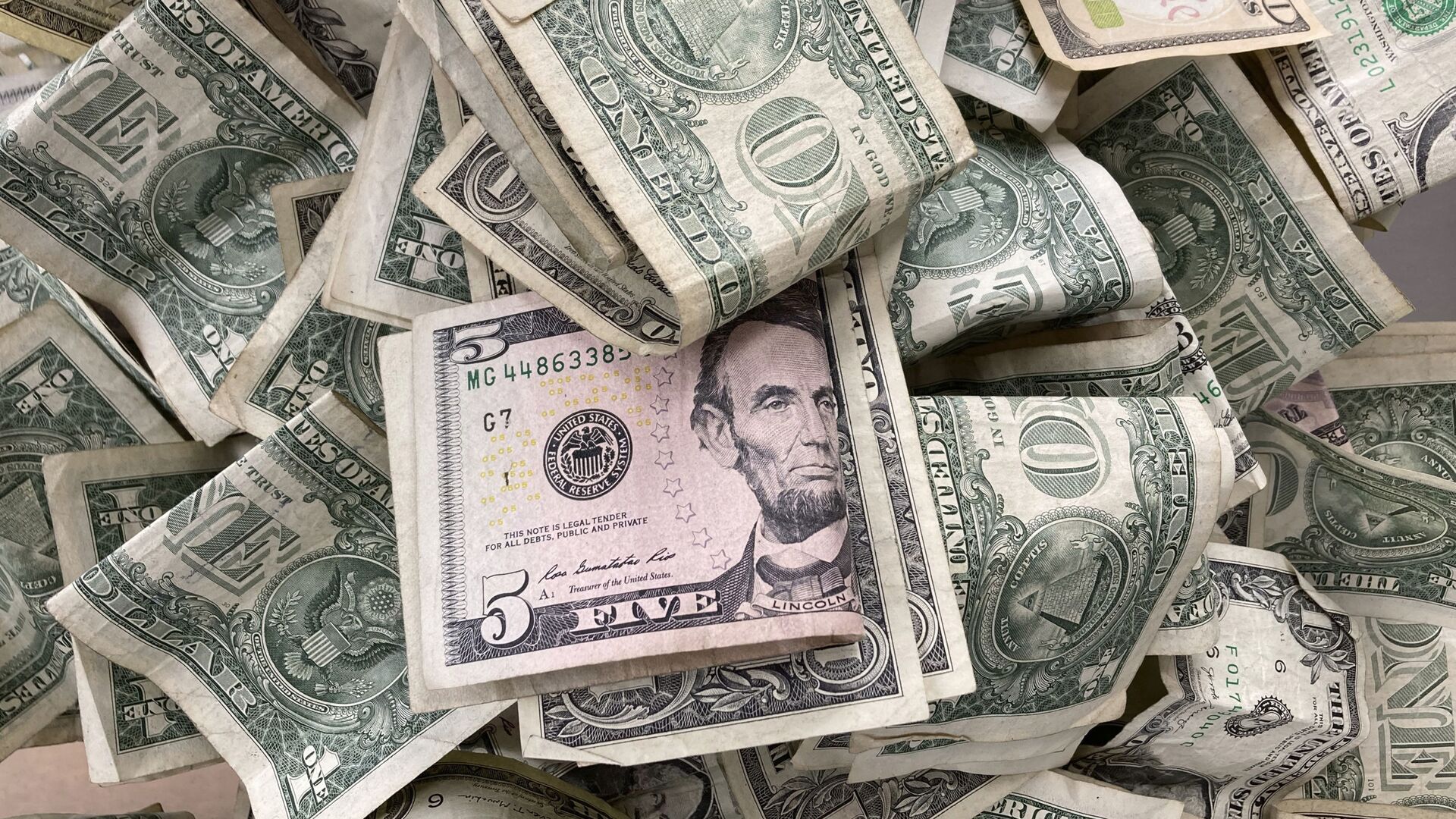Between Inflation and a Hard Place: Fed Risks Recession by Raising Interest Rates, Experts Say
18:35 GMT 13.06.2022 (Updated: 18:40 GMT 19.10.2022)

© AP Photo / Mark Lennihan
Subscribe
Despite the US Federal Reserve’s largest interest rate increase in 22 years, the US saw its largest inflation increase in 40 years in May. The situation has many fearing that the US economy may be doomed to enter a recession after two years of recovery from the crash at the start of the COVID-19 pandemic.
On Friday, the Bureau of Labor Statistics (BLS) reported in its monthly bulletin on consumer price indices that prices had increased by an average of 8.6% in May from where they were in May 2021, noting it was the largest year-on-year increase since December 1981. This, despite the US central bank increasing interest rates by between 0.5% and 0.75% at the start of the month - a move intended to slow the declining value of the dollar.
As a result, Wall Street is preparing for even bigger rate hikes from the Fed following the next board meeting on Wednesday.
“Fifty [base points] was the big round number six months ago. Meanwhile, 75 is a very middling type of hike. So the Fed might say: ‘Look, if we want to show commitment, let’s just do 100,’” Steven Englander, global head of G-10 FX research at Standard Chartered Bank, told Bloomberg on Monday, referring to the base points system used to describe interest rate increases. One hundred base points translates to an increase by 1 percentage point.
On Monday, the Effective Federal Funds Rate, or the interest rate set by the Fed that requires banks to hold on to a certain amount of their assets instead of lending them out overnight, was 0.83%. An increase of 100 base points would place it at 1.83%.
Rising inflation has been blamed on a number of factors, including pandemic-related shipping cost increases, spiking oil, gasoline and diesel prices, and price gouging by both commodity sellers and oil companies. The Biden administration has variously tried to blame Russia’s special operation in Ukraine or greedy oil companies for the hike, but polls show that a majority of Americans ultimately blame his administration.
Englander told the New York paper the Fed could implement a dramatic rate increase as part of what he called a “Volcker moment,” referring to former Fed Chairman Paul Volcker’s harsh reaction to inflation in 1979.
Volcker dramatically increased interest rates over a short period of time, which put an end to the strangling “stagflation” of the 1970s but it also caused the London Inter-Bank Offer Rate (LIBOR) to skyrocket, destroying the economies of many Third World nations. The dramatically increasing national debt led to the 1980s being called the “Lost Decade.”
However, increasing interest rates carries with it another risk: bringing the US economy to a grinding halt and triggering a recession.
“The chairman of the Fed doesn’t want to let the ‘r’ word slip out of his mouth in a positive way, that we need a recession,” former US central bank policy maker Alan Blinder told Bloomberg on Sunday. “But there are a lot of euphemisms and he’ll use them.”
Banks like JPMorgan Chase & Co. and Barclays are preparing for a wage-price spiral, in which low unemployment rates create pressure for higher wages as companies try to win the few remaining workers, which translates into higher prices, which further drives inflation and requires even higher wages to offset the depreciating value of the dollar.
Unemployment is also nearing historic lows, approaching the 3.5% it was at immediately prior to the COVID-19 pandemic, when global lockdowns in March and April 2020 collapsed the world economy as hundreds of millions of workers stayed home and global trade ground to a halt in an attempt to stop the spread of the deadly virus.
The Fed is already predicting a rise in unemployment later this year even in the best of circumstances, which Fed Chairman Jerome Powell has referred to as a “soft or ‘soft-ish’ landing.”
Stock markets were in chaos on Monday as bond yields jumped and stock prices fell, with the Dow Jones down nearly 700 points when this story went to publication. The S&P 500 and Nasdaq had suffered even worse than the Dow, with Jack Ablin, founding partner of Cresset Capital, telling CNBC that “anyone who wants to be bullish can’t find anything to hang their hat on.” The index had fallen nearly 20% from its March high.
A poll conducted by the Washington Post and George Mason University’s Schar School of Policy and Government in late April and early May found that two-thirds of Americans expect inflation to get worse this year, with 9 in 10 Americans making some kind of spending cutbacks to compensate for the price increases.

